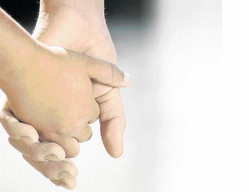Sister act
Published: Tuesday | November 3, 2009

Hello Mrs Walker-Huntington:
I am a naturalised US citizen who filed for my half-sister in Jamaica. We share the same father.
The US Embassy in Jamaica required a DNA test to prove we are siblings. The results are that we are unlikely to have shared the same father (0.79 per cent) - less than one per cent.
My father has been deceased since 2004 and her mom since 2005. All my 46 years, she has been my sister. My father accepted us both as his children. My questions are:
1. What are the chances that the DNA test might be incorrect?
2. Since the test was done using blood, will swabbing the mouth present the same results?
3. What course of action can we take to come out with a favourable result?
4. Does the US Embassy have any remedial action that will be helpful towards our situation?
Awaiting your response.
- P.D.
Dear P.D.,
In order to have a family petition for a relative approved, United States Citizenship and Immigration Services (USCIS) must be satisfied that a genetic/biological and or legal relationship exists between the petitioner and the beneficiary.
Where the evidence presented is insufficient or inconclusive to prove the relationship, USCIS "suggests" a DNA test be conducted. Such tests must be performed at an accredited DNA-testing laboratory approved by USCIS.
By statutory regulation, USCIS has to require a blood test. Parties can, of course, refuse to submit to the DNA test. The USCIS, in this instance, then decides the case based on the information they have.
DNA testing is thought to be the most accurate to prove a genetic relationship between two people. That is not to say that an error cannot occur producing an incorrect reading. If you doubt the results between your sister and yourself, you can contact the laboratory and question their procedures, i.e. how the specimens were handled.
The alternative, is you may also go to another accredited laboratory and have the testing redone. If the second test results indicate you and your sister are genetically related, then you can contact an experienced immigration lawyer about appealing any denial that may have been rendered by USCIS based on the original test results. You can also contact USCIS about reconsidering their decision in light of the new results. If you wish to pursue an appeal or a reconsideration of your case, you must act sooner rather than later.
There is nothing that can be done to arrive at a favourable result if the tests are done correctly. The results have to be accepted at face value.
Biological relationship
USCIS does not have the ability to approve a petition if the genetic/biological relationship cannot be established. Notwithstanding, you have lived with your sister as your sister, and your father acknowledged her as his daughter, the fact that there is no established genetic/biological relationship makes it unlikely that USCIS can approve your petition. That is the reality of the situation.
When the father's name is listed on the birth certificate after birth, when the father and mother are not married, or the child is not legitimised before their 18th birthday, USCIS requires proof of the biological relationship and of a parent child-relationship before approving any parent/child or sibling petition.
Dahlia A. Walker-Huntington, is a Jamaican-American attorney who practises law in Florida in the areas of immigration, family, corporate and personal injury law. She is a mediator, arbitrator and special magistrate in Broward County, Florida. Contact her: info@walkerhuntington.com or editor@gleanerjm.com








